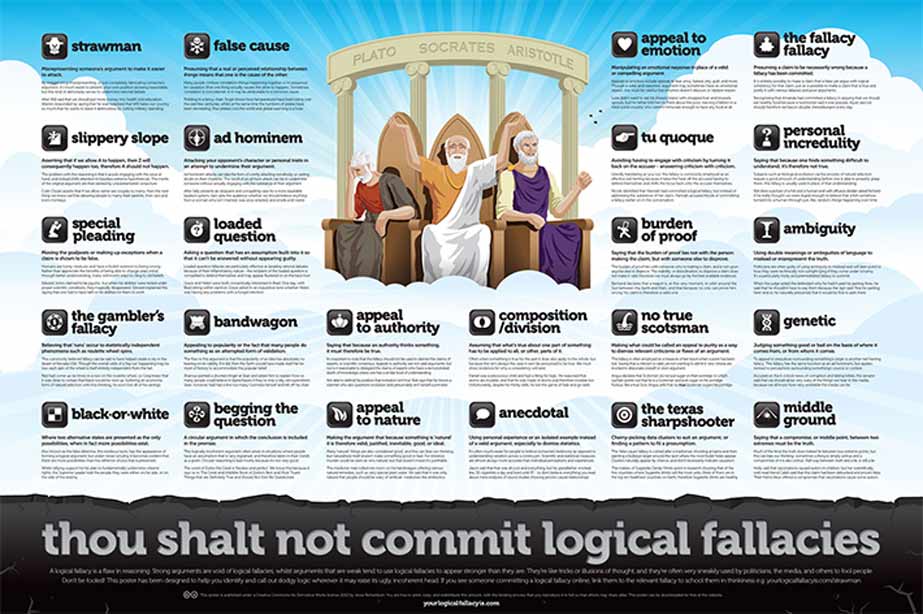




To love the world is to want to know it. To know the world we must accept it. To accept it we use reason to understand it. Never should we shun reason or condemn it.









Idle dreamer




To love the world is to want to know it. To know the world we must accept it. To accept it we use reason to understand it. Never should we shun reason or condemn it.




"the qualities of these bacteria, like the heat of the sun, electricity, or the qualities of metals, are part of the storehouse of knowledge of all men. They are manifestations of the laws of nature, free to all men and reserved exclusively to none." SCOTUS, Funk Bros. Seed Co. v. Kale Inoculant Co.




To love the world is to want to know it. To know the world we must accept it. To accept it we use reason to understand it. Never should we shun reason or condemn it.
 1
1




Storm V Spooner wrote:No matter how many times we see Jim (name picked at random) choose to get mad when we say "the Dallas Cowboys are a terrible team" we have no evidence that he is unable to control this as opposed to simply not choosing to do so.
Idle dreamer




To love the world is to want to know it. To know the world we must accept it. To accept it we use reason to understand it. Never should we shun reason or condemn it.
 1
1




Storm V Spooner wrote:
Yes often the person does not consider the options, but choosing by default is still making a choice.
Idle dreamer




To love the world is to want to know it. To know the world we must accept it. To accept it we use reason to understand it. Never should we shun reason or condemn it.




Idle dreamer




Joel Hollingsworth wrote:
I have very little control over whom I respect, or feel attracted to, although I'm able to behave more-or-less appropriately on both counts. I have virtually no control over what experiences inspire fear in me, although I make an effort to work through any unreasonable fight-or-flight responses over time, ideally by repeatedly experiencing them in ways that don't reinforce a sense of danger. I don't decide that a joke is funny and then find myself laughing at it: the best I can do to control my sense of humor would be to stifle laughter, or fake it.
 1
1




My books, movies, videos, podcasts, events ... the big collection of paul wheaton stuff!
 1
1




Windward Sustainability Education and Research Center
Permaculture Apprenticeships at Windward
America's First Permaculture Cemetery? Herland Forest Natural Burial Cemetery
 1
1




paul wheaton wrote:I wrote a quick article on fallacy about ten years ago.
It seems to me that at the root of most communities is consensus. And at the root getting consensus to work is being able to discuss stuff. And if one person uses one fallacy, it can take an hour for the group to unravel it. But communication today is loaded to the gills with fallacy - it is considered the normal way we speak. So decision can either be based on fallacy (as opposed to logic and reason) or discussions can be mired forever in fallacy presented by a few.
And yet, I've never heard of an exploration of fallacy to be used to help a community resolve their stuff.
Perhaps fallacy has been relabeled in some way?
Our projects:
in Portugal, sheltered terraces facing eastwards, high water table, uphill original forest of pines, oaks and chestnuts. 2000m2
in Iceland: converted flat lawn, compacted poor soil, cold, windy, humid climate, cold, short summer. 50m2
 2
2




My books, movies, videos, podcasts, events ... the big collection of paul wheaton stuff!
 1
1




paul wheaton wrote:Here, fallacy is relabeled as "doublespeak"
 1
1




Scipio Johnson wrote:In this case, learning to recognize fallacies are one part of logical reasoning, which is itself the middle part of the grammar, logic, rhetoric method of critical thinking.
Trivium
 1
1





 1
1





Moderator, Treatment Free Beekeepers group on Facebook.
https://www.facebook.com/groups/treatmentfreebeekeepers/





 1
1




 2
2








Is it then logical to resort to fallacy to change minds?




William Bronson wrote:
Ive had opponents who skillfully point out my own fallacies in argument with me,knowing my own values require I concede the point.
They don't actually hold these same values, so pointing out their own fallacies have no impact.
I am try to get at the idea that logic and reason are not going to affect everyone,or even most people.
Fallacy actually might work better. Is it then logical to resort to fallacy to change minds?
Is it reasonable?
Is it ethical?
Tribalism and social bonding help to keep individuals committed to the group, even when personal relations may fray. That keeps individuals from wandering off or joining other groups. It also leads to bullying when a tribal member is unwilling to conform to the politics of the collective.
 when how to deal with change and I couple it with the idea that "seeing is believing". I can't convince my neighbour that hugelkulturs are better than traditional gardening techniques no matter how many statistics I provide because they've been doing traditional gardening for decades. Once I build a hugel though, and they can make real, direct comparisons between how it functions and how their own garden does, this can begin to open the door at least. It takes so much energy to start to change people, that the only worthwhile effort is to show people a different perspective and let them figure things out for themselves.
when how to deal with change and I couple it with the idea that "seeing is believing". I can't convince my neighbour that hugelkulturs are better than traditional gardening techniques no matter how many statistics I provide because they've been doing traditional gardening for decades. Once I build a hugel though, and they can make real, direct comparisons between how it functions and how their own garden does, this can begin to open the door at least. It takes so much energy to start to change people, that the only worthwhile effort is to show people a different perspective and let them figure things out for themselves.

"Our ability to change the face of the earth increases at a faster rate than our ability to foresee the consequences of that change"
- L.Charles Birch
My Herbal Tea Store (CA)





|
Make yourself as serene as a flower, as a tree. And on wednesdays, as serene as this tiny ad:
12 DVDs bundle
https://permies.com/wiki/269050/DVDs-bundle
|



